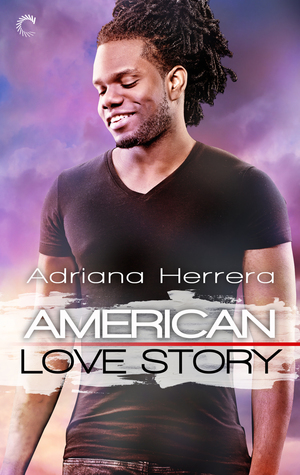
Available Here:
Harlequin| Amazon|Barnes & Noble
From the publisher:
No one should have to choose between love and justice.
Haitian-born professor and activist Patrice Denis is not here for anything that will veer him off the path he’s worked so hard for. One particularly dangerous distraction: Easton Archer, the assistant district attorney who last summer gave Patrice some of the most intense nights of his life, and still makes him all but forget they’re from two completely different worlds.
All-around golden boy Easton forged his own path to success, choosing public service over the comforts of his family’s wealth. With local law enforcement unfairly targeting young men of color, and his career—and conscience—on the line, now is hardly the time to be thirsting after Patrice again. Even if their nights together have turned into so much more.
For the first time, Patrice is tempted to open up and embrace the happiness he’s always denied himself. But as tensions between the community and the sheriff’s office grow by the day, Easton’s personal and professional lives collide. And when the issue at hand hits closer to home than either could imagine, they’ll have to work to forge a path forward…together.
Review:
American Love Story is the third novel in Adriana Herrera’s American Dreamers series. I’ve enjoyed this book series so much, both for its multicultural aspects and the relationship between the love stories and social issues. Every novel in this series addresses some aspect of power and race, featuring leads from Afro-Caribbean backgrounds. But nowhere is this concern illustrated more powerfully or compellingly as in the romance between Professor Patrice Denis and Assistant District Attorney, Easton Archer.
The relationship between Denis and Archer throws into sharp relief the issues of institutionalized racism and the responsibilities of those in power to agitate and work in favor of change. Even allies who see the repeated aggression against oppressed peoples and identify with the victims at times hesitate to act because of internal pressures that hinder positive change, thereby making them complicit in the abuse. The police harassment of young men of color (specifically, black men) in the fictionalized version of Ithaca, New York offers the opportunity to both test the growing relationship between Denis and Archer, as well provide an illustration of how environments in which police feel enabled to profile and misuse their power are often allowed to flourish while allies turn away from fear of reprisals, or simple indifference.
The actions (or lack thereof) on behalf of the DA and the Sheriff’s offices have real consequences on the circle of friends that constitute the core characters of this series. But the consequences on the central love story are direct and immediate, and drive the romantic plot forward. It’s a credit to Herrera’s writing that she can center the issue of power and law enforcement in a narrative that never forgets that it is, first and foremost, a love story. The attraction between Denis and Easton is explosive and leaps off the page, but there is also genuine respect between the two leads derived from common values around serving the public good. I’ve read reviews calling out Denis for being strident in his beliefs and allowing them to potentially sabotage a relationship he deeply wants and needs. But the fact is, if you live our life constantly aggrieved by microagressions and you are victimized for things you can’t control (your race, culture or sexuality), then situations that are merely abstract for some become realities for others. This reality is lived every day and I absolutely love that the novel doesn’t relent in showing this.
And yet, despite the constant possibility that things will go sideways, love flourishes. Denis and Archer share a relationship that is built on mutual trust, vulnerability and the desire to learn and grow, to be active in their support, not only of each other, but of their beliefs. Easton, as a privileged white man, does not hesitate to be humble, to admit he is still learning, and willing to be guided in his desire for justice. His allyship is a verb and exists independent of his relationship with Denis. It makes their romance that much stronger because they already come to it with similar values.
Romance, at its heart, is always about the negotiation of power. Romances contend with power structures that inform the settings and cultures of the main characters, whether the author is conscious of this or not. I love that Herrera’s romance doesn’t shy away from showing how central this negotiation of power can drive a narrative, with consequences that are a reflection what is happening in the broader culture. It is a different kind of idealization from the one we come to expect in romance. This version of the romance fantasy says that, even in an imperfect world, where injustice is a rot that must be battled constantly, love and dignity can flourish. One informs the other, but in the best scenario, you can have both love and justice.
I received an ARC from NetGalley in exchange for an honest review.





